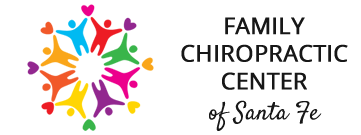Top 5 Mistakes That Reduce Supplement Effectiveness
There are many reasons why nutritional supplementsare sometimes ineffective. In some cases, it is simply due to a bad product that does not meet the label claims or is produced with poor quality control.
#5: Micro-Overdosing
Micro-overdosing is the mistake of taking the correct daily allowance of products that require divided dosing in a single serving. For example, instead of taking one pill three times a day as directed, a person takes three pills once a day. What makes this mistake so common is that many popular supplements (such fish oil and glucosamine) can be taken all at once. But for others, such as calcium, taking the full daily requirement all at once exceeds the dose that can be digested at one time.
#4: Unintended Underdosing
Unintended underdosing happens when a person unknowingly takes less pills than they should. It is most often seen with products whose supplement facts are for multiple pills. A common scenario would be a woman who is told she needs a stronger multivitamin than the one-pill-a-day product she uses. She finds a better brand and takes one a day, never realizing it’s a four-pill-a-day product – meaning the ¼ dose of the new product may be less than the low-potency product it replaced.
#3: Meal Mistakes
Some supplements require a meal for absorption, while others have better uptake between meals. Depending on the product and the person’s unique gastrointestinal tract, this mistake can result in a partial to total loss of supplement effectiveness.
#2: Inconsistent Use
Inconsistent use can also be described as frequency underdosing. This error occurs in one of two ways – missing days (e.g., to take 60 days to finish a 30-day bottle) or replacement delays (e.g., repurchasing the product 14 days after running out).
#1: Taking Unnecessary Supplements
The most common reason a particular supplement doesn’t work is because it isn’t needed. Whenever I do a nutritional consultation, I have the patient bring in every supplement they own (or e-mail the list to me in the case of phone appointments) and determine why each product was purchased.
In my experience, I have found that friends, co-workers, family members, acquaintances and the media (including advertising) are the primary sources of advice on nutritional supplements for many people. In most cases they are very well-meaning, but equally unqualified to give this type of guidance.
I ask a simple, diplomatic question in these situations: “How many questions did the person who recommended the dietary supplement ask you about your diet?” Make sure your doctor asks you the same question when evaluating your nutritional supplement needs. This way, you can ensure you’re taking the supplements you need – and not taking the ones you don’t need.
G. Douglas Andersen, DC, DACBSP, CCN, is a chiropractor and clinical nutritionist who practices in Brea, Calif.
FAMILY CHIROPRACTIC CENTER OF SANTA FE
Learn more about our practice and what we can do for you.
Family Chiropractic Center of Santa Fe is committed to your good health and well-being.
Family Chiropractic Center of Santa Fe is a family practice, providing safe and effective treatment for everyone from newborns to centenarians.
Read their testimonials.







